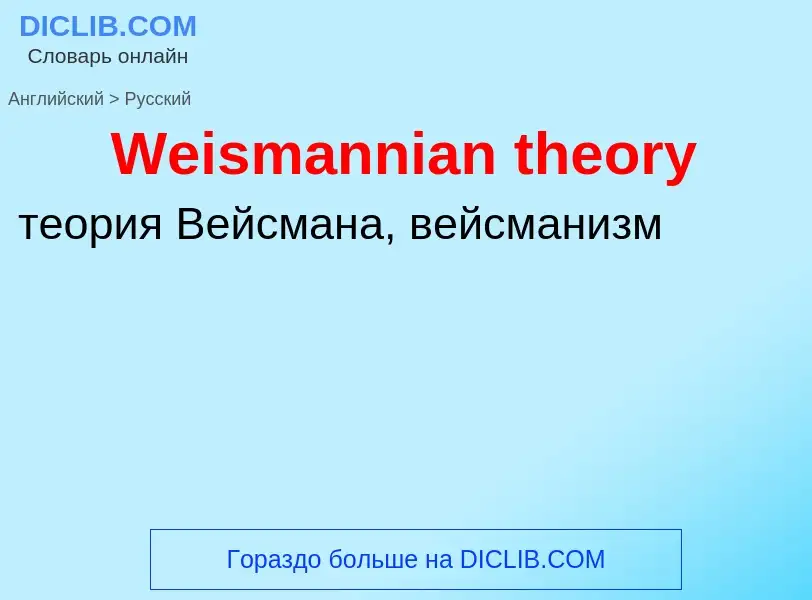Traducción y análisis de palabras por inteligencia artificial ChatGPT
En esta página puede obtener un análisis detallado de una palabra o frase, producido utilizando la mejor tecnología de inteligencia artificial hasta la fecha:
- cómo se usa la palabra
- frecuencia de uso
- se utiliza con más frecuencia en el habla oral o escrita
- opciones de traducción
- ejemplos de uso (varias frases con traducción)
- etimología
Weismannian theory - traducción al ruso
математика
теория первого порядка
математика
дедуктивная теория
Definición
.
Wikipedia
The theory-theory (or 'theory theory') is a scientific theory relating to the human development of understanding about the outside world. This theory asserts that individuals hold a basic or 'naïve' theory of psychology ("folk psychology") to infer the mental states of others, such as their beliefs, desires or emotions. This information is used to understand the intentions behind that person's actions or predict future behavior. The term 'perspective taking' is sometimes used to describe how one makes inferences about another person's inner state using theoretical knowledge about the other's situation.
This approach has become popular with psychologists as it gives a basis from which to explore human social understanding. Beginning in the mid-1980s, several influential developmental psychologists began advocating the theory theory: the view that humans learn through a process of theory revision closely resembling the way scientists propose and revise theories. Children observe the world, and in doing so, gather data about the world's true structure. As more data accumulates, children can revise their naive theories accordingly. Children can also use these theories about the world's causal structure to make predictions, and possibly even test them out. This concept is described as the 'Child Scientist' theory, proposing that a series of personal scientific revolutions are required for the development of theories about the outside world, including the social world.
In recent years, proponents of Bayesian learning have begun describing the theory theory in a precise, mathematical way. The concept of Bayesian learning is rooted in the assumption that children and adults learn through a process of theory revision; that is, they hold prior beliefs about the world but, when receiving conflicting data, may revise these beliefs depending upon their strength.

